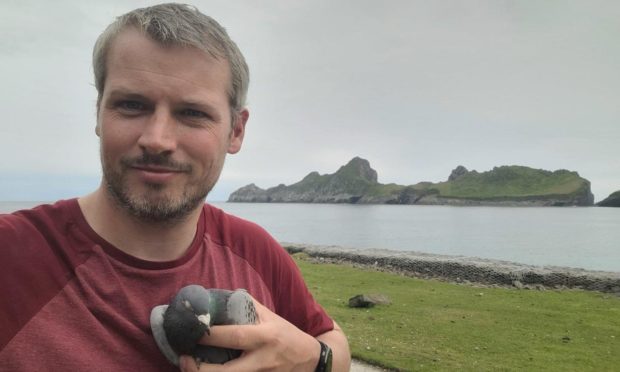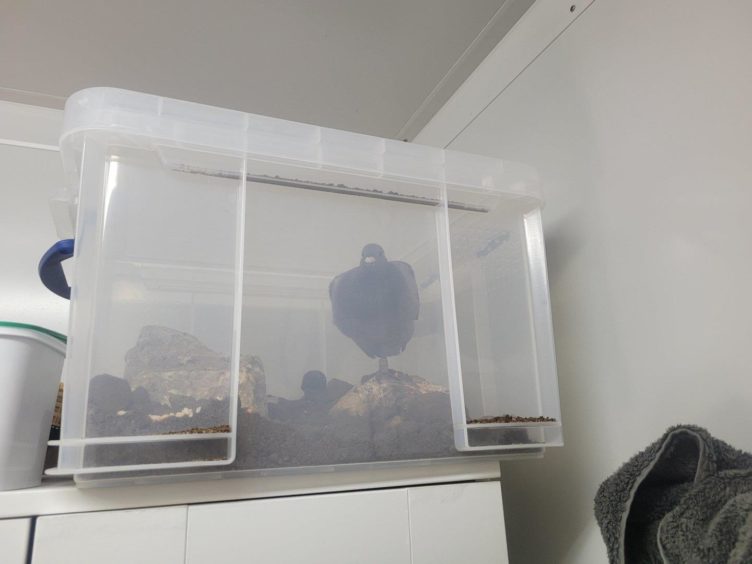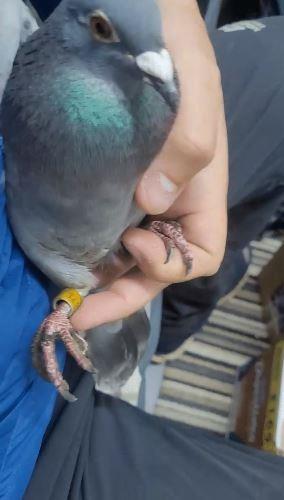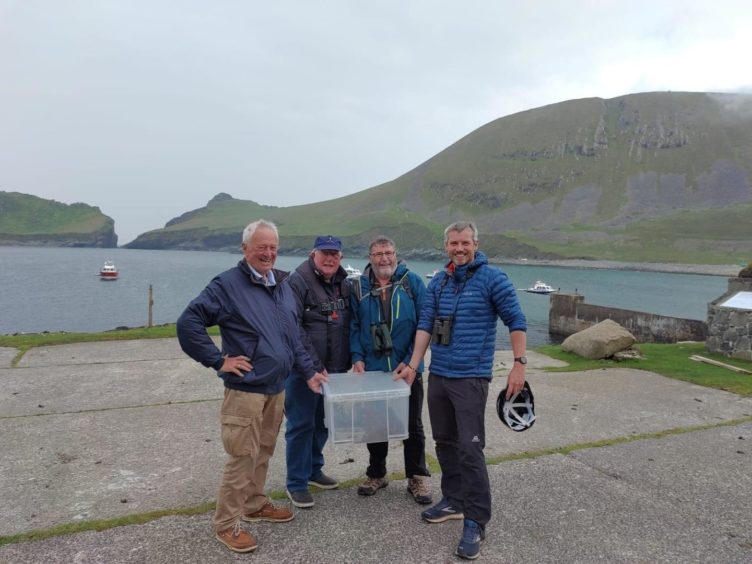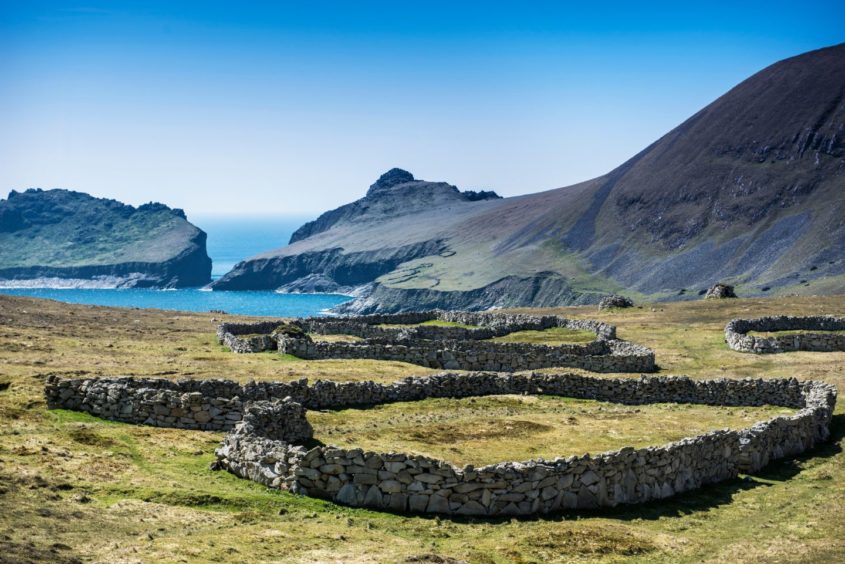An Irish racing pigeon that got lost after a falcon attack has turned up more than 400 miles away on the remote St Kilda archipelago, 40 miles west of the Western Isles.
The injured bird had been in a race in the County Cork town of Skibbereen on Friday but lost its bearings and was found exhausted 433 miles away on St Kilda on Monday.
Biosecurity expert Conor McKinney, who is working with construction on St Kilda, spotted the animal had a ring, and after a “carry on” to capture it, “Declan”, as he has been nicknamed, is now recovering from his ordeal.
Castaway “Derry lads”
Mr McKinney, who is from Derry, said it was a “shocker” to discover the bird’s owner is also from Derry, and lives close to his family home.
Plans are now being considered on whether to let Declan recover and attempt to fly home, or wait until October when he can be transported by hand.
Mr McKinney said: “One of the labourers on site Lennon MacInnes got him, and we got it safe into a box and went to the Racing Pigeon Association.
“They got in touch and said its owner was a guy from Derry, and you could have knocked me for six, I couldn’t believe it because the guy lives about seven miles down the road from where my family home is.
“It was such a shocker. The boys were making fun of us, both me and Declan are Derry lads that have been cast off to this island together.
“I called the owner, and he couldn’t believe the craic, he just couldn’t get over it.
“The two of us were just left shaking our heads.”
Recovery
Declan is being kept inside worker’s accommodation on St Kilda at the moment while he regains his strength, and is being fed plenty of food and water.
When he was attacked during the race, he sustained an injury to his wing, but Mr McKinney and others on St Kilda are ensuring their feathered friend gets lots of love and care.
Mr McKinney said: “He’s got a wound on his wing, he’s sat in a plastic box with a perch, a wee yoghurt pot of water and we’re going to keep in contact with his owner in Derry.
“We’re going to try and get him back home, but that might not be until October, so if he’s well enough, we might give the boy a ring and see if it’s worth taking him to the south of the island and releasing him, and see if he can fly home at night time.
“But for now, he’s exhausted and we’re going to help him rest, we’re giving him plenty of soup broth with peas and lentils that he’s eating away at, so he is.”
UPDATE 1.20pm: Declan’s express trip home
The crew of the Irish boat Lady Kate have rescued Declan, and will take him home this weekend.
The vessel had been on St Kilda, and after speaking with Mr McKinney, the skipper agreed to take the poorly pigeon back home as they are due back in Ireland this Saturday.
Declan has been carefully transferred from the worker’s accommodation to the Lady Kate within his carrying box.
Protecting St Kilda from invasive species
St Kilda is owned by the National Trust for Scotland, and is a World Heritage Site.
It has not had a permanent population of humans since 1930, but is home to a great deal of wildlife.
As well as important cultural history, the archipelago is also famed for its natural heritage, as it is a breeding ground for important seabird species like puffins, fulmars, and gannets.
It is also the only home of special subspecies, such as the St Kilda field mouse, and the St Kilda wren, which can be found nowhere else in the world in the wild.
As part of his job on the island, Mr McKinney ensures no non-native species like rats manage to escape on to St Kilda having stowed away on ships, as they can cause havoc for the native animals if they secure a foothold.
He also works hard to protect local wildlife from the impact of the few humans who work on St Kilda.
He said: “We have over a third of the UK’s population of fulmar and gannet, we’ve got puffins, storm petrels, the whole works, St Kilda has it all.
“It’s a really important place for culture and wildlife.
“My role is biosecurity.
“I’m here to support a construction project going on here that could be on a very sensitive spot, so my role is to ensure the breeding birds are protected, the St Kilda mice, and the other endemic species are protected, and to ensure the likes of rats and other non-native species don’t land on the island.
“I wrote the biosecurity management plan for the island, we look for stowaways, set traps, and do a lot of bird surveys.
“Even things like light pollution can be a problem.
“Young puffins and manx shearwater are very vulnerable to light pollution, you see this kind of problem in the likes of Mallaig, where you’ll get a bird coming in and ending up in town centres.
“It happens out here too, so we make sure shutters are down and lights are off when rooms aren’t in use.”
